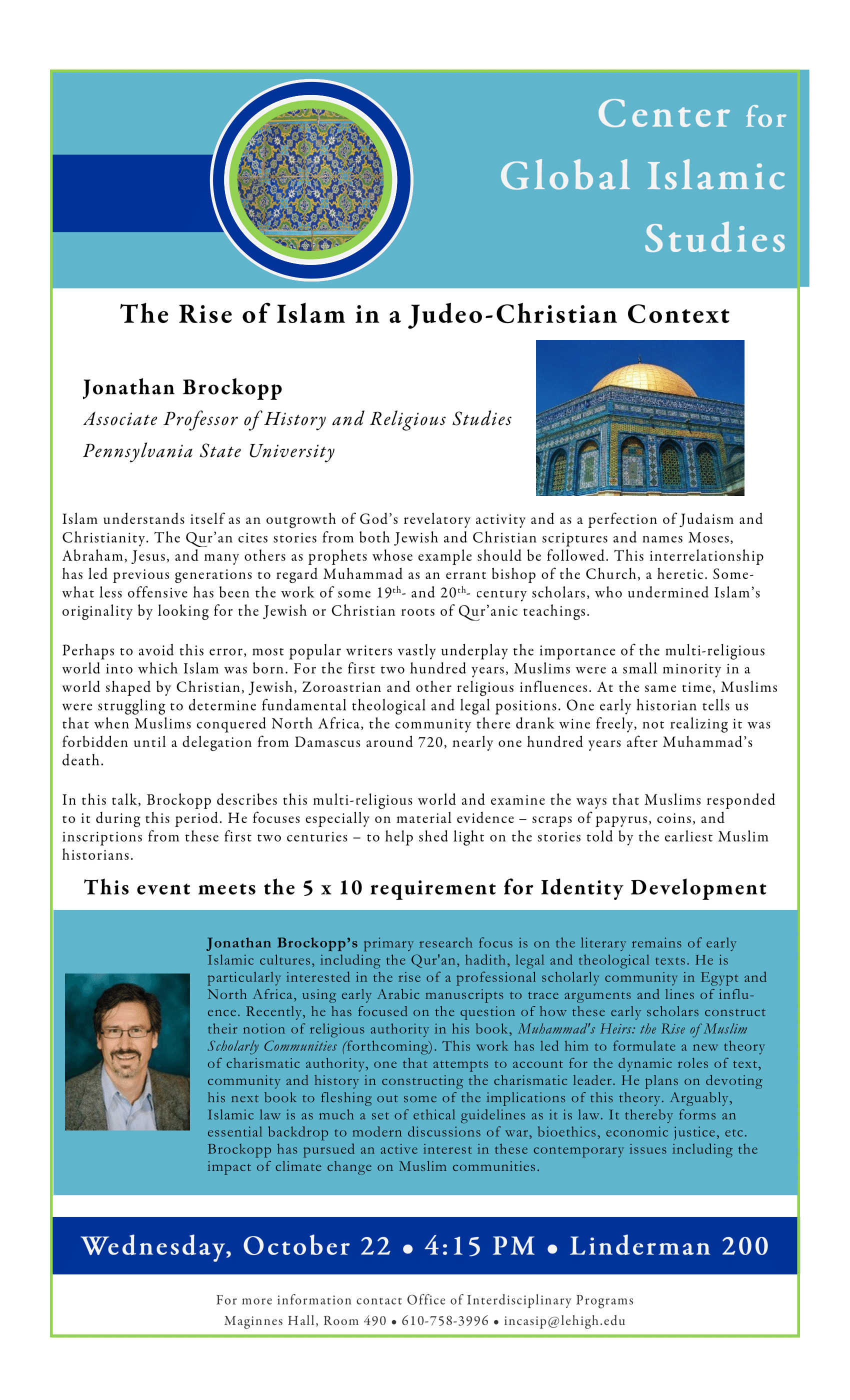Speaker:
Date:
Islam understands itself as an outgrowth of God’s revelatory activity and as a perfection of Judaism and Christianity. The Qur’an cites stories from both Jewish and Christian scriptures and names Moses, Abraham, Jesus, and many others as prophets whose example should be followed. This interrelationship has led previous generations to regard Muhammad as an errant bishop of the Church, a heretic. Somewhat less offensive has been the work of some 19th- and 20th- century scholars, who undermined Islam’s originality by looking for the Jewish or Christian roots of Qur’anic teachings.
Perhaps to avoid this error, most popular writers vastly underplay the importance of the multi-religious world into which Islam was born. For the first two hundred years, Muslims were a small minority in a world shaped by Christian, Jewish, Zoroastrian and other religious influences. At the same time, Muslims were struggling to determine fundamental theological and legal positions. One early historian tells us that when Muslims conquered North Africa, the community there drank wine freely, not realizing it was forbidden until a delegation from Damascus around 720, nearly one hundred years after Muhammad’s death.
In this talk, Brockopp describes this multi-religious world and examine the ways that Muslims responded to it during this period. He focuses especially on material evidence – scraps of papyrus, coins, and inscriptions from these first two centuries – to help shed light on the stories told by the earliest Muslim historians.
Jonathan Brockopp’s primary research focus is on the literary remains of early Islamic cultures, including the Qur'an, hadith, legal and theological texts. He is particularly interested in the rise of a professional scholarly community in Egypt and North Africa, using early Arabic manuscripts to trace arguments and lines of influence. Recently, he has focused on the question of how these early scholars construct their notion of religious authority in his book, Muhammad's Heirs: the Rise of Muslim Scholarly Communities (forthcoming). This work has led him to formulate a new theory of charismatic authority, one that attempts to account for the dynamic roles of text, community and history in constructing the charismatic leader. He plans on devoting his next book to fleshing out some of the implications of this theory. Arguably, Islamic law is as much a set of ethical guidelines as it is law. It thereby forms an essential backdrop to modern discussions of war, bioethics, economic justice, etc. Brockopp has pursued an active interest in these contemporary issues including the impact of climate change on Muslim communities.

